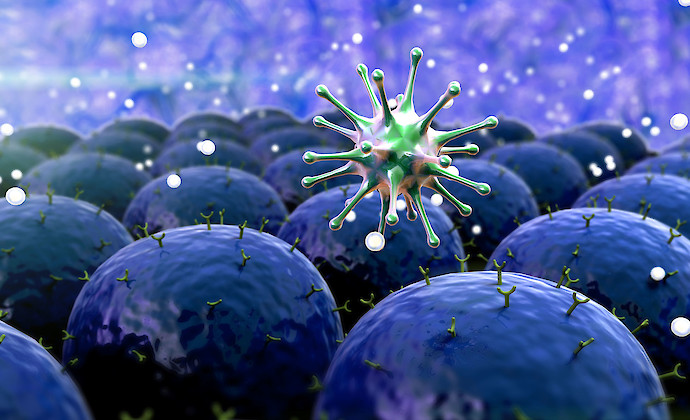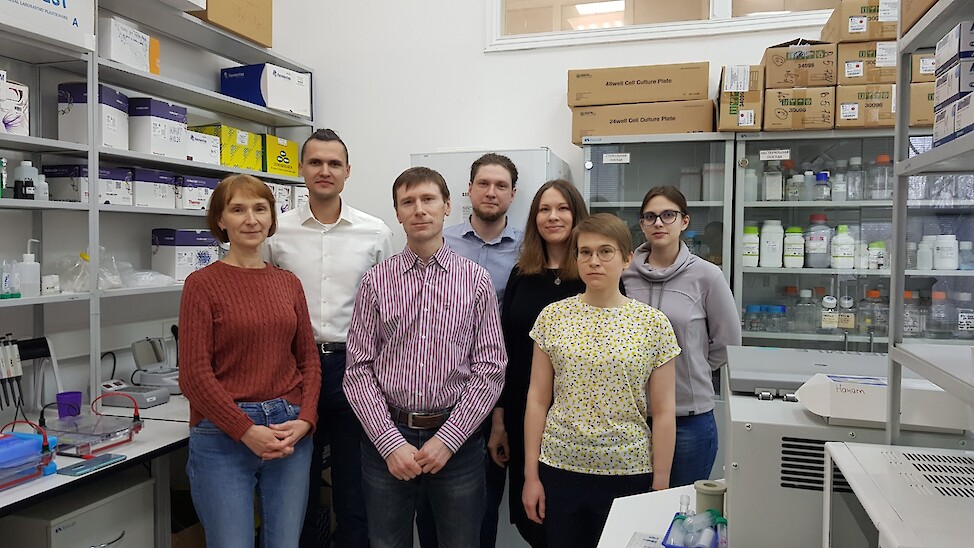Our group is focusing on development of new and improved methods for CRISPR/Cas9-based gene editing in human cells. We have described SORTS, a novel method that enables easy and fast selection of cells with knockouts of intracellular or secreted proteins via knock-in of short epitope tags expressing on cell surface from target gene promoter. FACS-sorted gene-edited polyclonal cells advantaged over clonally-selected cells by reducing off-targets. Currently, we are adapting this technology for HIV treatment. Particularly, instead of epitope tags we design constructs for expression peptides from viral gp41 protein that would inhibit virus-cell membrane fusion. Knock-in of such genetic element into HIV-1 proviral DNA of infected cells will not only inactivate provirus, but also provide a resistance to a wide range of HIV-1 isolates. In addition, using genetic manipulation approaches our group study mechanisms of pathogen-host interaction for two human retroviruses HIV-1 and HTLV-1.
Group leader
Information
Group members
-
Junior Research Fellow
Cell and Gene Technology GroupAleksandra Maslennikovaa.k.dorogush@gmail.com -
Ph.D.
Research Fellow
Lab. of Molecular oncogeneticsSvetlana Kalinichenkoskalin13@gmail.com -
Research Fellow
Cell and Gene Technology GroupNatalia Kruglovanatalya.a.kruglova@yandex.ru(967) 122 1781 -
лаборант группы клеточных и генных технологийSofiia Borovikovaborovikovase@genebiology.ru
Selected publications
Funding
| foundation | title |
|---|---|
| RSF | Developing novel approaches for generation of cells with knockout or inducible knockdown of genes encoding intracellular or secreted proteins |
| RFBR | A novel CRISPR/Cas9 platform for generation and selection of human immune cells with a resistance to HIV-1 |
| RFBR | Engineering human lymphoid cells to quantify HIV-1 cell-to-cell infection and virological synapse formation using flow cytometry |
| RFBR | Role of KPNA1, CD82 and other cellular factors involved in HTLV-1 replication and selected after GeCKO library screening |


